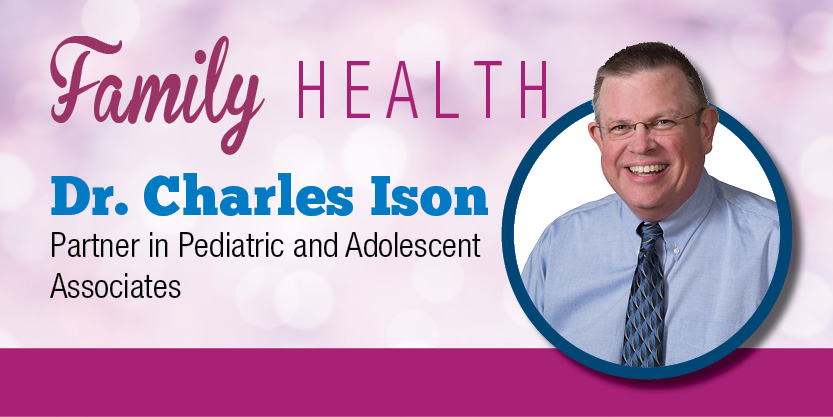Dr. Charles Ison: Preparing Kids for Air Travel
Airplanes are one of the safest means by which to travel. The odds for any one person of being in an airplane accident are 1 in 11 million. Plus, 96% of these unlucky passengers survive.
Air travel with children takes some preparation, but it is certainly doable.
Reading books and talking about the process of going to the airport, going through security, boarding the plane, what happens on the flight, and disembarking the plane can make things run smoother and be less anxiety-producing.
Letting children ask questions before, during and after the flight (no matter how strange) can reduce their fears.
Getting to the airport early can help allow for the extra time to get through security checks.
Children can wear easy-to-remove shoes and clothing to help with screening (less invasive now than screening for those 13 and older).
Explaining the process – and reassuring your child that a favorite doll or stuffed animal will be returned after it is X-rayed – can help decrease the chance of a meltdown.
Warn children to never threaten or even joke about threatening bringing bombs or guns onto a plane while going through security checks.
Make sure car seats for those 40 pounds and under have FAA-approved labels so they can be used on the plane. Other car or booster seats (as well as strollers) can be gate-checked in most cases.
Getting seats for children near parents on a flight is trickier than in the past, but it can often be done.
It helps to nurse infants or give them a bottle during takeoff and landing to help equalize air pressure in their ears.
Check with a healthcare professional about when it is OK to fly after an ear infection or ear surgery.
Any needed in-flight medicines, such as epinephrine injectors, should be labeled.
Remember to include documentation of their necessity from a healthcare provider.
Toys, games, reading material and snacks should be packed and brought.
If travelling abroad, check with a healthcare provider about any extra vaccines or preventive medications that may be needed.
Jet lag can be helped by adjusting a child’s sleep schedule by 2-3 hours a few days before the flight.
Airplane travel can be anxiety-producing for children. With preparation ahead of time and plenty of thoughtful reassurance, it can be turned into a wonderful, memorable life experience.

